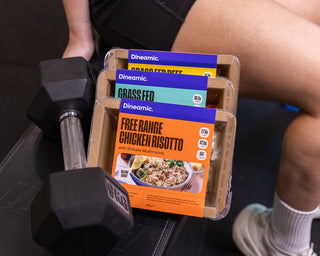Over ten years ago, when the Australian Dietary Guidelines were redeveloped by the Government, the focus groups delivered some interesting findings. They found that the main barriers to healthy eating for your average busy Australian were as follows:
- Lack of time
- Lack of cooking skills
- Fresh, healthy food is perceived as too expensive
Given what has happened in the last decade, these barriers now feel more true than ever before.

Yes, everyone's perception is their reality, however, we must look after our bodies and wallets!
Not having the necessary skills to put together a meal (or the time required to do so) means we are effectively starting behind the eight ball.
As busy professionals, these challenges are with us every day. Energy and fitness levels need to remain high so that we can maintain consistent work output daily, as what we eat has a significant effect on how our brains work.
Did you know that your diet affects:
- the brain neurochemistry that controls mood and response to stress
- the way your brain and body interact
- the higher brain functions that control learning, memory and intellectual functioning
So it’s easy to see how high-fat low-energy foods can negatively impact your working day.
Unfortunately, our carbohydrate intake is increasing, not because of the often unfairly demonised white bread and pasta, but because we are eating more packaged snack food bars that contain starches and sugar.
These bars are seemingly perfect go anywhere, eat anywhere food— the simplicity of throwing them in your bag or car means they can fill a hole when you don't have the time.
But, when we do cook, our repertoire of meals sits at around only five in total. We don't experiment with ingredients or flavours and stick to a few favourites that get us through.
Nothing is wrong with this other than boredom is sure to set in which will stop us cooking even more. We are already eating out, getting takeaway or buying ready-to-eat supermarket meals at least 2.5 times a week.
As time-poor as we are, we need to find ways to keep up the required energy levels by feeding our brain whilst sticking to a budget–is there an easy way to do this?
Buying healthy doesn't have to cost the earth. Whilst you can purchase high-fat, low-energy meals such as sausages, pizza and hamburgers relatively cheaply, purchasing healthy ingredients or meals can be cost-effective; you need to start planning.
Stay organized and be a savvy shopper – only buy what you need
- Plan your meals and stick to your plan
- Buy fresh fruit and vegetables in season
- Find quality, taste and value for money in healthy, nutritious ready-made meals.
The hardest part is making the change, and once you get into the swing of things, you might find you have reinvigorated a passion for healthy eating.









